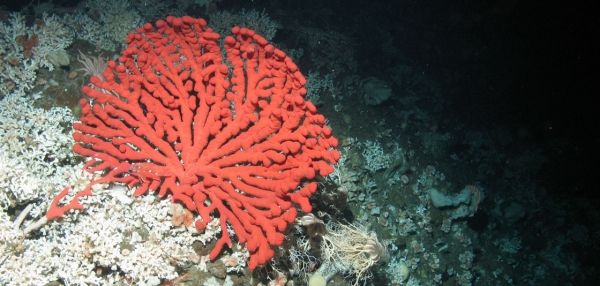The underlying structures of the reefs – which are home to a multitude of aquatic life – could fracture as a result of increasing ocean acidity caused by rising levels of carbon dioxide.
Hundreds of metres below the surface of the ocean in Southern California, researchers measured the lowest – therefore the most acidic – pH level ever recorded on living coral reefs. The corals were then raised in the lab for one year under the same conditions.
Scientists observed that the skeletons of dead corals, which support and hold up living corals, had become porous due to ocean acidification and rapidly become too fragile to bear the weight of the reef above them.
Continue reading at University of Edinburgh
image via NOAA


